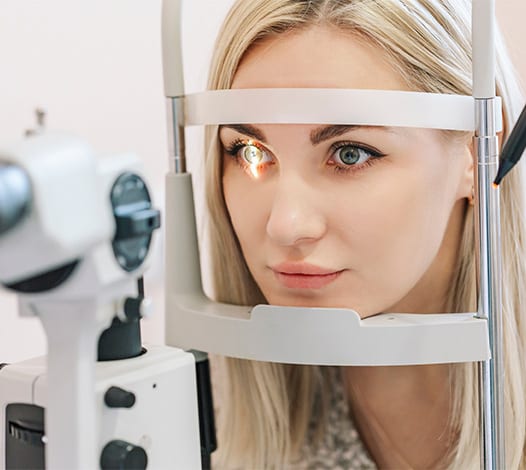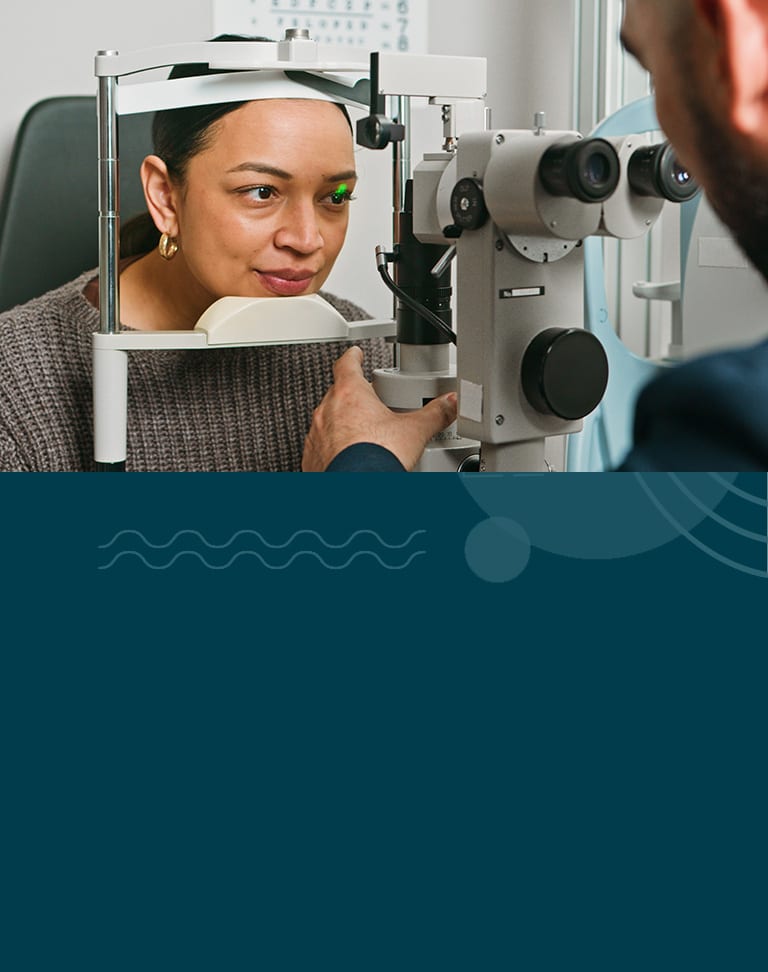Eye Care That Understands Diabetes
If you’re living with diabetes, regular eye exams are essential. Diabetes can affect the small blood vessels in the eyes, sometimes before you notice any vision changes.
At Spectrum Eyecare & Eyewear, we provide thorough, personalized diabetic eye exams to help protect your sight and catch any early signs of diabetic eye disease. Our caring team is here to support you through each step, answer your questions, and help you feel confident in your care.
We’re proud to support Fredericton and Minto’s community. Contact us to schedule your diabetic eye exam with us today!


How Often Do I Need a Diabetic Eye Exam?
The Canadian Association of Optometrists recommends that adults with type 1 or type 2 diabetes have a comprehensive eye exam at least once a year.
In some cases, especially if changes in your eye health are detected, we may suggest more frequent check-ins. These routine exams help us monitor for complications and changes to the optic nerve. Catching these changes early can make a big difference in managing long-term vision.
What to Expect from Your Diabetic Eye Exam
Your diabetic eye exam includes a thorough vision and eye health check, closely examining the retina and blood vessels. We use 2 key pieces of modern technology:
- Optical coherence tomography (OCT) allows us to see a cross-sectional view of your retina (back of the eye). It’s a noninvasive imaging tool that helps us diagnose and manage eye conditions related to diabetes.
- optos California can detect the earliest signs of diabetic changes, often without needing dilation. It is an ultra-widefield retinal imaging tool that captures a 200° view of your retina in one quick scan.
If dilation is necessary, we’ll walk you through it to keep you comfortable and informed.
Understanding Diabetic Eye Disease
Diabetes can quietly affect your eyes before you notice any symptoms. Yearly eye exams are essential to helping us detect these conditions early before they impact your vision.
Using imaging and personalized care, we monitor your eye health over time. With early detection and the right support, we can help reduce your risk of vision loss and keep you seeing clearly for years to come.
We diagnose and manage the following diabetic eye conditions:
Diabetic Retinopathy
Diabetic retinopathy happens when high blood sugar levels start to damage the tiny blood vessels in the retina (back of the eye). At first, you may not notice any changes in your vision, but retinopathy can lead to blurred vision or even vision loss.
We look for subtle signs using tools like retinal imaging. When caught early, managing your blood sugar and monitoring your eyes closely can help slow its progression.
Diabetic Macular Edema
Diabetic macular edema is a complication of diabetic retinopathy that causes fluid buildup in the macula (the part of your eye responsible for central vision). This swelling can make it harder to read, drive, or see faces clearly.
It usually develops as retinopathy progresses, but can occur at any stage. Our imaging tools help us spot this condition early, track changes, and recommend appropriate next steps.
Keeping Your Vision Strong
Medical eye exams involving diabetes can sometimes feel overwhelming, so we aim to make your eye care as straightforward and comfortable as possible. We’re here to be a trusted part of your care circle.
Contact us to book your diabetic eye exam with Spectrum Eyecare & Eyewear today.

What Services We Have to Offer
Get to Know the Brands We Carry

- Chanel
- Cartier
- Maui Jim
- Lindberg
- Oliver Peoples
- DITA
- ZeroG
- Tom Ford
- Ray-Ban
- Dita Lancier
- Prada
- Coach
- Chanel
- Cartier
- Maui Jim
- Lindberg
- Oliver Peoples
- DITA
- ZeroG
- Tom Ford
- Ray-Ban
- Dita Lancier
- Kate Spade
- Coach
- Prada
Visit Our Fredericton Location
Fredericton
You can find us on the corner of Prospect and Hanwell, right across from Riverview Ford. While coming up Prospect, look out for the fun mural on the side of the building!
Hours
Address
- 550 Prospect Street
- Fredericton, NB E3B 6G9
Contact Us
Check Out Our Google Reviews


Visit Our Minto Location


Minto
Visit us at the corner of Logue Road and Queen Street (one street back from Main) on Mondays and Wednesdays. We have plenty of parking available.
Hours
Open Monday & Wednesday
9:00 AM – 5:00 PM
Address
- 253 Logue Road
- Minto, NB E4B 3XR



